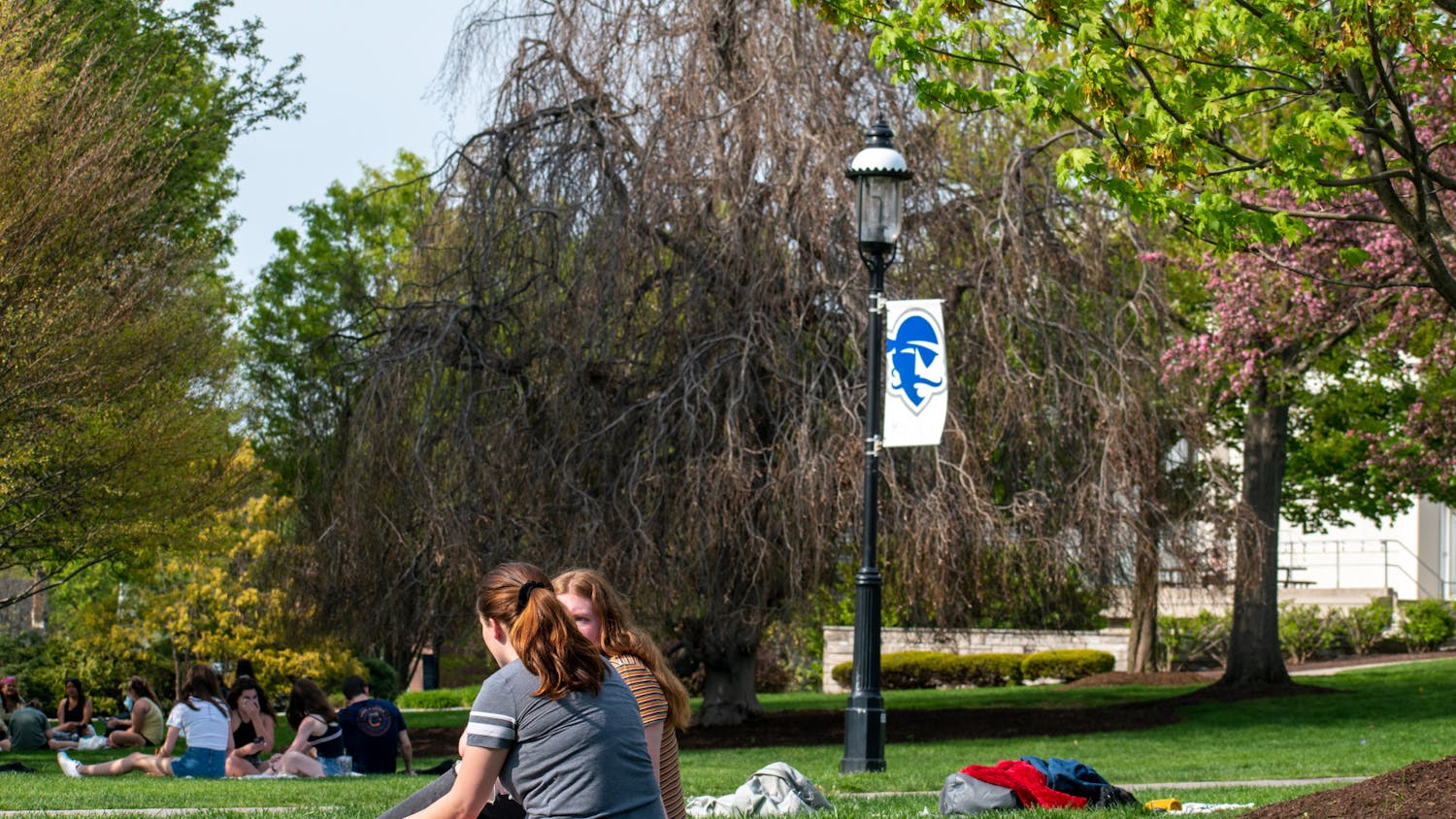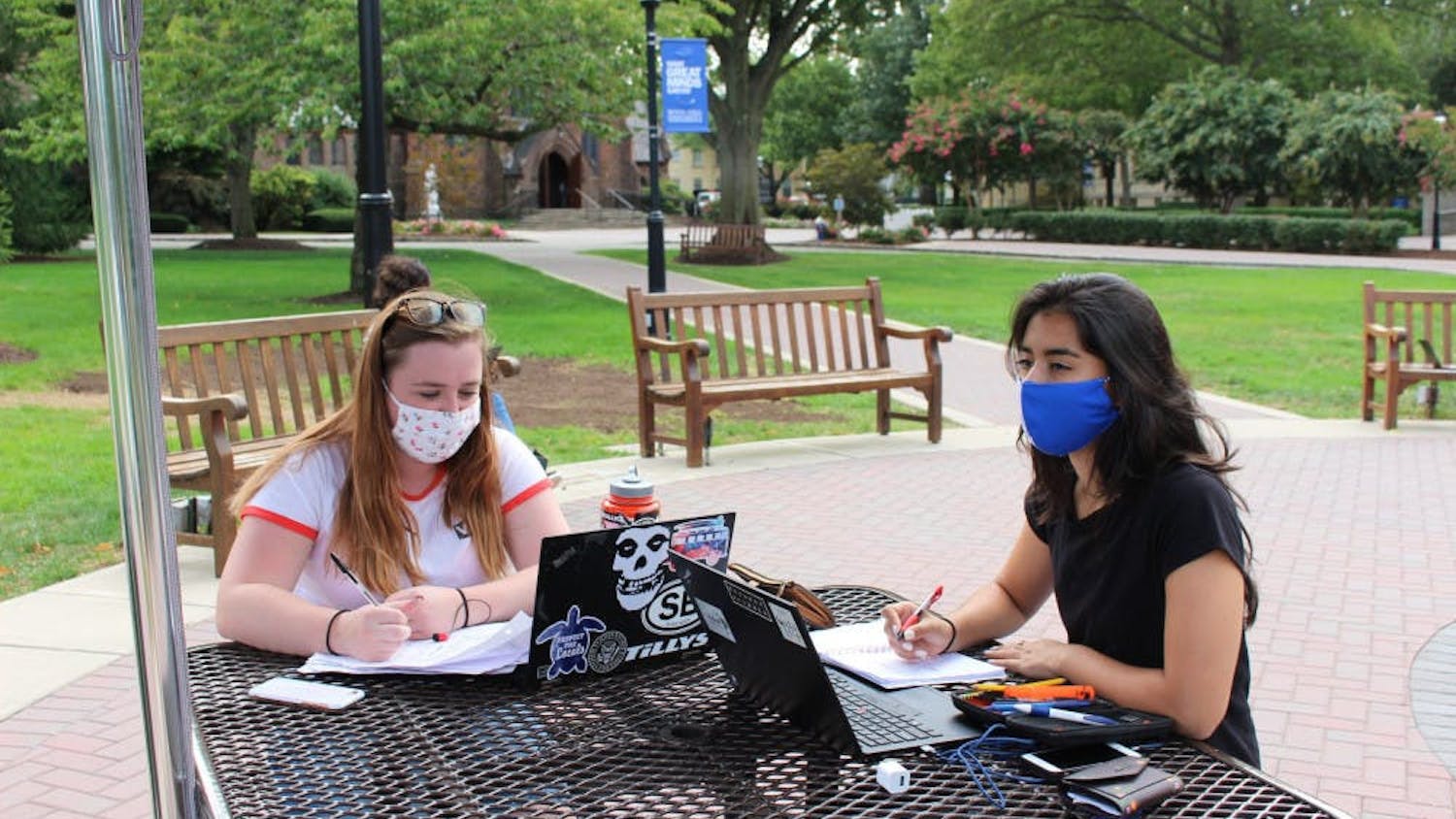Over the last year-and-a-half, the Seton Hall University community has had to deal with a host of obstacles to overcome the shift to online learning, the “Hyflex” in-person and online program last year, and the return to in-person learning this semester.
The University’s transition back to “in-person” classes included enhanced cleaning protocols and an indoor mask policy. Although students are usually the ones asked about their experiences in the classroom, professors are also largely affected by the ongoing changes. Dr. Takacs, a professor in the department of religion, said that while he enjoyed returning to in-person classes, COVID-19 still has an effect on the University.
“Overall, I’ve enjoyed returning to in-person classes,” Takacs said. “I do not think the campus has returned to how it was pre-COVID in part because there remains the specter of the last year and a half hanging over us—physical distancing, quarantining, sickness, and sudden deaths in the family. These remain in the immediate memories of many, if not most, members of the campus community. However, it is pleasant to see people in person.”
The topic of masks has become a controversial topic. Takacs said that he has not had people not wear masks besides the “below-the-nose” maskers, all of whom pull their masks up with a gentle reminder.
The pandemic affected educational institutions greatly, both in negative and positive ways, in terms of learning remotely versus in person.
“I think one thing we have learned from this pandemic concerning educational strategies K-12 and in institutions of higher learning is that teaching in-person, in general, is more effective than virtual or remote education,” Takacs said. “However, we have also learned that for some students, remote education is actually more suitable for them. These may include individuals with various atypical learning, emotional, and social behaviors or neurodivergent persons. I think we need to commit to universal access to the best education for all, and this may require keeping virtual/remote an option for some.”
Although he is in support of remote learning being an option, Takacs said he does not currently have any remote students in his classes.
However, Dr. C. Lynn Carr, a professor of sociology in the department of sociology, anthropology, social work & criminal justice, had an encounter with a remote student this semester.
“I had one student who asked to take my in-person class remotely,” Carr said. “I offered that student the option to take an independent study with me instead, covering similar material. I cannot easily accommodate remote students in my courses unless the entire class moves to a remote environment. My classes are largely discussion-based, incorporating frequent in-classroom small group work, with a good percent of the final grade based on the quality and quantity of students’ participation. If I were to attempt to teach simultaneously to both remote and in-person students, I believe it would make for a difficult working environment for me and reduce the quality of the course for all students.”
Felipe Lopez, a professor from the department of political science and public affairs, said he feels that the debate of in-person versus virtual classes will be ongoing.
“I think it's likely that for the foreseeable future, we will be drawing from our virtual skill set we built during the first year of COVID and have online meetings or office hours, for example, to complement other in-person activities,” Lopez said.
The University implemented a variety of regulations upon the return to in-person classes including sanitizer stations, masking requirements and vaccination requirements. However, Carr said she wishes that faculty “were taken into greater consideration and in a more democratic and transparent manner.”
“I’m so glad Seton Hall decided to require the COVID-19 vaccination for the campus community,” Carr said. “I would feel more comfortable if we were all required to show proof of vaccination status, rather than simply declaring that we are vaccinated.”
Nicole Miazga can be reached at nicole.miazga@student.shu.edu




